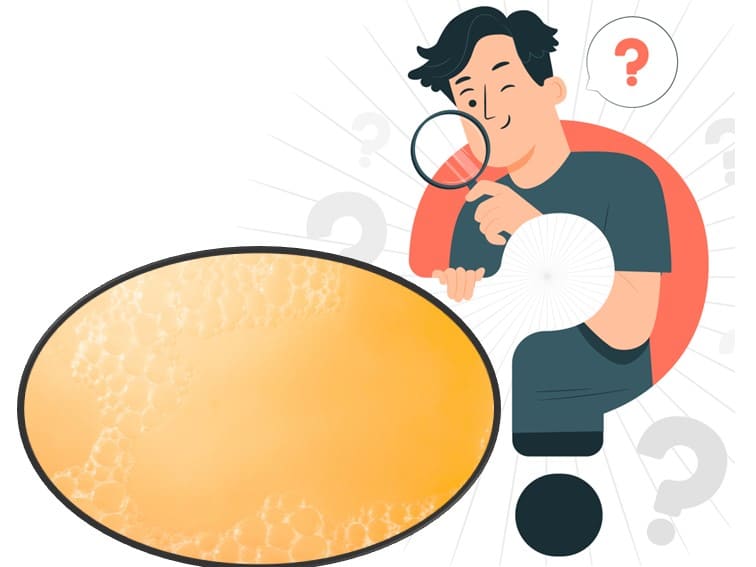Frothy urine: Your urine appearance gives clues about your health – yes, it is a fact. Therefore, the next time when you notice any change in the color and appearance of your urine, you should see your nephrologist to have a closer look at your health status.
Let us try to understand what’s normal and what’s not!
What does normal urine look like?
If you have normal urine – it looks clear with a yellowish hue – with no foam or blood – Bubbles may be seen though – which is again normal.
What should you do if you notice foamy (frothy) urine?
The appearance of bubbles in urine occasionally can be normal because it depends on the force and speed of urination and also on other factors.
But if someone is persistently passing foamy urine – which is becoming more prominent and visible over a period of time, do not ignore it.
Persistent frothy urine is a sign of protein in urine (proteinuria). This condition requires further evaluation because it is a sign of a serious kidney problem.
Read more about proteinuria
First of all, foamy urine is not normal as it indicates the presence of protein in the urine. Normal healthy kidneys do not leak any protein in urine. But when there is damage to the filtering mechanism in the urine, kidneys leak protein and sometimes blood in the urine.
What should you do if your urine appears foamy?
Foamy urine on a regular basis may indicate kidney problems. Therefore, if you notice foamy urine persistently, you should look for other symptoms to get some clues. The symptoms such as swelling around your eyes, hands, face, and legs may indicate kidney disease. You may have other symptoms like fever, joint pains, rashes, tiredness, and increased blood pressure.
When should you see a nephrologist?
If you see that your urine is foamy or have any other symptoms, you should immediately consult a nephrologist. Your nephrologist will see you, evaluate your symptoms and health condition, and then order urine tests and blood tests to confirm whether you have protein in your urine – which indicates kidney disease.
Urine tests are done to confirm the proteinuria and also to quantify the amount of protein. The higher the protein in the urine, the worse the kidney disease.
You will need to undergo further blood tests and scans like ultrasound or CT scan.
A kidney biopsy test where a small piece of kidney tissue is taken and seen under a microscope is an essential test to be done to determine the exact cause of proteinuria and also will help guide the appropriate treatment needed to cure /control the protein leak in urine
What are the common causes of proteinuria?
Diabetes, high blood pressure, inflammation in the kidney, lupus, etc., Are some of the common causes of protein leak in urine.
Proteinuria if left untreated can lead to worsening kidney function and can end up in kidney failure requiring dialysis.
Bottom line
So, do not ignore early warning signs! If you have swelling around your eyes, abdomen, and swollen legs accompanied by foamy urine, you should immediately seek an appointment with a nephrologist.
Early detection and Early treatment can save your kidneys!

Leave a Reply